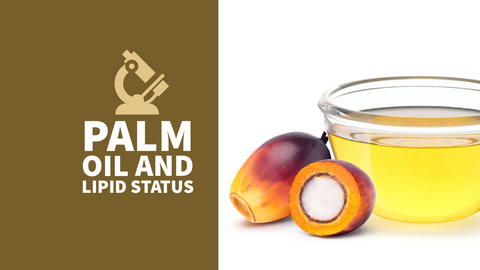Palm oil, a subject of heated debate in health and nutrition circles, often faces criticism and skepticism. To truly understand the impact of palm oil on our health, it's crucial to delve into its nature and examine scientific evidence. This article aims to shed light on palm oil, its extraction process, and its nutritional implications, guided by a significant study titled “Intake of Palm Olein and Lipid Status in Healthy Adults: A Meta-Analysis.”
What is Palm Oil/Olein?
Palm oil is derived from the fruit of the oil palm tree, primarily found in tropical regions of Africa, Southeast Asia, and South America. Palm olein, the liquid component of palm oil, is obtained through fractionation, separating the solid (stearin) and liquid (olein) parts. Contrary to popular misconception, palm oil, though comparatively higher in saturated fat(50%), is also rich in monounsaturated fat(40%) and contains some polyunsaturated fat(10%). Palm oil, due to its affordability, is a staple in many cuisines and modern food products across the planet.
The Study's Findings:
The study conducted a comprehensive meta-analysis, a research method that combines data from multiple studies to derive a more robust conclusion. This approach is particularly valuable in nutrition science, as it helps to overcome the limitations of individual studies, such as small sample sizes or diverse methodologies. In this case, the meta-analysis compared the effects of palm olein with various other dietary oils on serum lipid levels in healthy adults.
The results of this meta-analysis were quite revealing. Contrary to popular belief, the intake of palm olein did not significantly differ in its effects on lipid biomarkers when compared with other dietary oils. This finding is crucial because it challenges the widespread perception that palm olein, due to its saturated fat content, is detrimental to cardiovascular health. Instead, the study suggests that palm olein's impact on these important health indicators is comparable to that of other commonly consumed unsaturated oils.
Understanding Lipid Biomarkers:
Lipid biomarkers are key indicators used to assess cardiovascular health. They include:
- Total Cholesterol (TC): This is the total amount of cholesterol in your blood. High levels of TC are often associated with an increased risk of heart disease.
- Low-Density Lipoprotein (LDL) Cholesterol: Often referred to as 'bad' cholesterol, high levels of LDL can lead to a buildup of cholesterol in arteries, increasing the risk of heart attack and stroke.
- High-Density Lipoprotein (HDL) Cholesterol: Known as 'good' cholesterol, HDL helps remove other forms of cholesterol from your bloodstream. Higher levels of HDL are associated with a lower risk of heart disease.
- Triglycerides: These are a type of fat found in your blood. High levels of triglycerides combined with low HDL cholesterol or high LDL cholesterol are linked to atherosclerosis, the buildup of fatty deposits in artery walls, which increases the risk of stroke and heart disease.
- TC/HDL Cholesterol Ratio: This ratio is used to determine your risk of developing heart disease. A lower ratio indicates a lower risk of heart disease, while a higher ratio indicates a higher risk.
The study's findings that palm olein's impact on these biomarkers is similar to other unsaturated dietary oils is significant. It implies that palm olein might not elevate the risk factors for cardiovascular disease as previously thought, especially when it comes to cholesterol levels and ratios that are critical in assessing heart health.
Implications for Health and Nutrition:
These findings suggest that palm oil, when consumed in moderation and as part of a balanced diet, may not pose the health risks often associated with it. This is particularly relevant for products like Energy Pods and CocoZen from KG Food Company, which use palm oil as a key ingredient. The study supports the notion that palm oil can be a healthy part of food products when used judiciously.
Conclusion:
The debate around palm oil is complex, but studies like this provide a more nuanced understanding of its role in nutrition. As consumers and nutrition enthusiasts, it's important to base our dietary choices on scientific evidence rather than prevailing myths. Products like Energy Pods and CocoZen, which incorporate palm oil thoughtfully, demonstrate that it can be part of a healthful diet.
Final Thoughts:
In the realm of nutrition, where myths and facts often intertwine, it's crucial to stay informed through credible scientific research. This study on palm olein offers a fresh perspective, encouraging us to reconsider our views on palm oil and its place in our diets.

